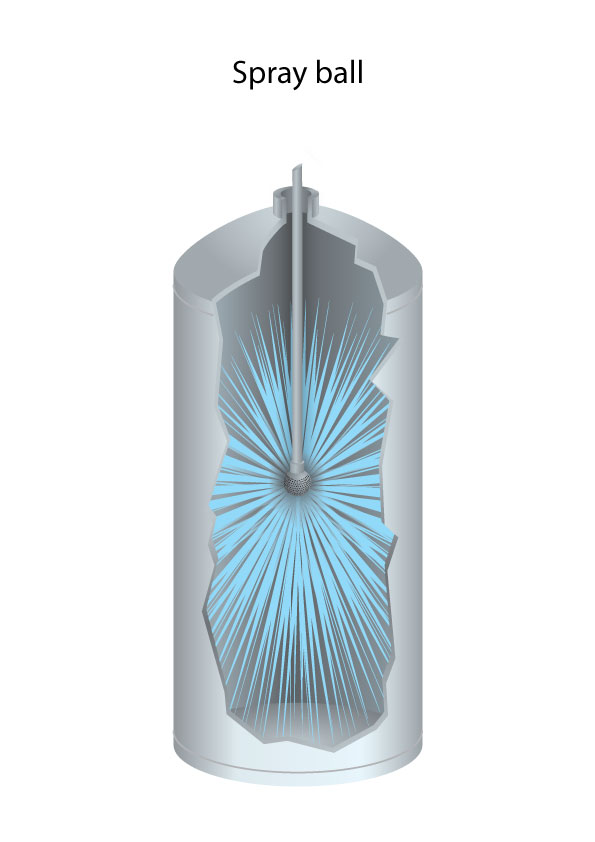Spray balls
Spray balls consist of a hollow sphere of hygienic 316 stainless steel with precise holes perforating it. This forms an omni-directional series of fluid jets as water is passed through at pressure. The jets will hit the walls of the tank, spread out and cascade downwards providing an effective cleaning action.
Spray balls are a simple device with no moving parts and hence are very reliable and required little or no maintenance. They are also cheap to purchase making them a cheap and reliable tank cleaning system that is deployed commonly in small to medium sized process vessels.
A variation on the spray ball is the HydroClaw, clog resistant tank cleaner. This tank cleaner has a free passage 3-5 times higher than normal spray balls and so is suitable for cleaning tanks that may contain pips, stems, fruits skins or other larger particles that could block smaller holes.

Limitations
Spray balls are limited in the cleaning power they can achieve. Even at higher pressures the micro jets formed by the ball are not particularly powerful and do not provide much mechanical cleaning action. This means that vessels much above 4 meters in diameter are not cleaned efficiently with static spray balls although for a simple rinse down they may still be suitable for bigger vessels.
Also Spray Balls are often “water hungry” meaning they will required more water per minute and more water over a whole cleaning cycle to get the job done than with rotary systems. This is because the impact / mechanical action cleaning delivered by the spray ball is minimal and instead most of the cleaning is achieved by the motion of water down the tank wall under gravity. Over time this water action will clean tough residues but it takes a considerable volume of water to do so.
Uses
Despite their limitations spray balls are still an important weapon in the tank cleaning arsenal. They are very effective in cleaning light residues in smaller tanks or delivering a rinse down stage in large tanks. As the spray is omnidirectional complete tank wetting is achieved more or less instantaneously meaning spray balls are the most effective devices for quick rinse down cycles. They can still be effective as main cleaning stage systems if left running for a period of time and may well be the only option for situations where rotary cleaners are precluded for safety reasons.